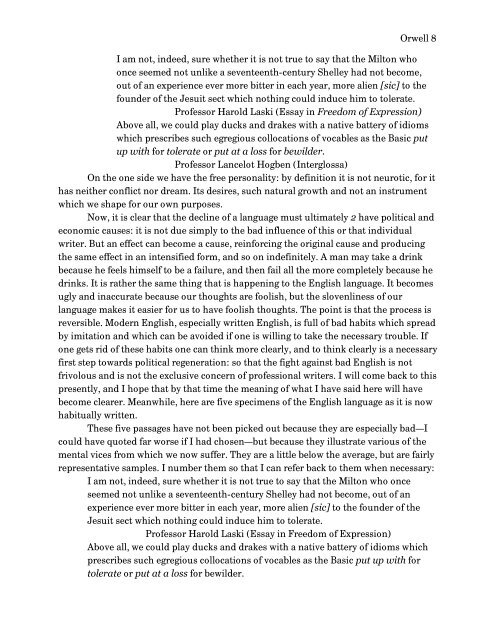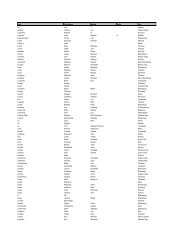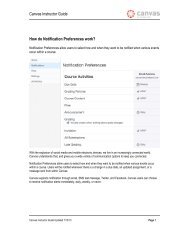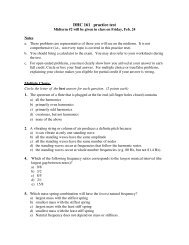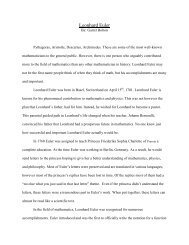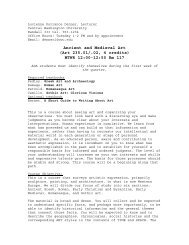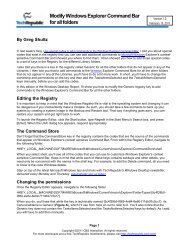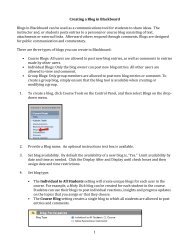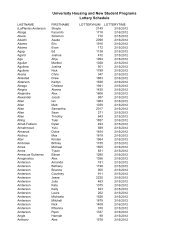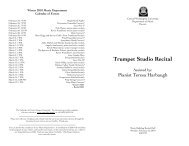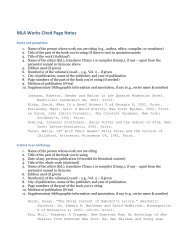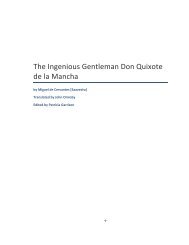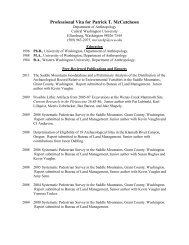THE COURAGE OF TURTLES - Central Washington University
THE COURAGE OF TURTLES - Central Washington University
THE COURAGE OF TURTLES - Central Washington University
Create successful ePaper yourself
Turn your PDF publications into a flip-book with our unique Google optimized e-Paper software.
Orwell 8<br />
I am not, indeed, sure whether it is not true to say that the Milton who<br />
once seemed not unlike a seventeenth-century Shelley had not become,<br />
out of an experience ever more bitter in each year, more alien [sic] to the<br />
founder of the Jesuit sect which nothing could induce him to tolerate.<br />
Professor Harold Laski (Essay in Freedom of Expression)<br />
Above all, we could play ducks and drakes with a native battery of idioms<br />
which prescribes such egregious collocations of vocables as the Basic put<br />
up with for tolerate or put at a loss for bewilder.<br />
Professor Lancelot Hogben (Interglossa)<br />
On the one side we have the free personality: by definition it is not neurotic, for it<br />
has neither conflict nor dream. Its desires, such natural growth and not an instrument<br />
which we shape for our own purposes.<br />
Now, it is clear that the decline of a language must ultimately 2 have political and<br />
economic causes: it is not due simply to the bad influence of this or that individual<br />
writer. But an effect can become a cause, reinforcing the original cause and producing<br />
the same effect in an intensified form, and so on indefinitely. A man may take a drink<br />
because he feels himself to be a failure, and then fail all the more completely because he<br />
drinks. It is rather the same thing that is happening to the English language. It becomes<br />
ugly and inaccurate because our thoughts are foolish, but the slovenliness of our<br />
language makes it easier for us to have foolish thoughts. The point is that the process is<br />
reversible. Modern English, especially written English, is full of bad habits which spread<br />
by imitation and which can be avoided if one is willing to take the necessary trouble. If<br />
one gets rid of these habits one can think more clearly, and to think clearly is a necessary<br />
first step towards political regeneration: so that the fight against bad English is not<br />
frivolous and is not the exclusive concern of professional writers. I will come back to this<br />
presently, and I hope that by that time the meaning of what I have said here will have<br />
become clearer. Meanwhile, here are five specimens of the English language as it is now<br />
habitually written.<br />
These five passages have not been picked out because they are especially bad—I<br />
could have quoted far worse if I had chosen—but because they illustrate various of the<br />
mental vices from which we now suffer. They are a little below the average, but are fairly<br />
representative samples. I number them so that I can refer back to them when necessary:<br />
I am not, indeed, sure whether it is not true to say that the Milton who once<br />
seemed not unlike a seventeenth-century Shelley had not become, out of an<br />
experience ever more bitter in each year, more alien [sic] to the founder of the<br />
Jesuit sect which nothing could induce him to tolerate.<br />
Professor Harold Laski (Essay in Freedom of Expression)<br />
Above all, we could play ducks and drakes with a native battery of idioms which<br />
prescribes such egregious collocations of vocables as the Basic put up with for<br />
tolerate or put at a loss for bewilder.


